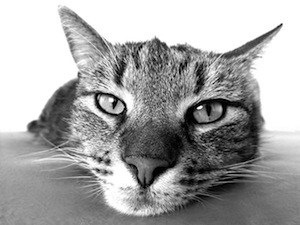 When you’re studying hard and paying good attention to the 3 Keys to Learning, making sure that your revision strategy gets the information you’re learning into your long-term memory, wouldn’t you also make sure that your eating and sleeping patterns support your other study skills?
When you’re studying hard and paying good attention to the 3 Keys to Learning, making sure that your revision strategy gets the information you’re learning into your long-term memory, wouldn’t you also make sure that your eating and sleeping patterns support your other study skills?
Sleep has been found to be an extremely important part of the process of developing a better memory. So for starters, you’d do well to avoid caffeine, found in tea and coffee and other drinks, because caffeine is a well-known culprit in disrupting sleep patterns.
It is known that sticking to a routine is the most reliable way to develop good sleeping patterns. Keep the bedroom for sleeping and not for watching TV or, heaven forbid, working. You need to teach your automatic, unconscious mind that the bedroom is for switching off. If you’re having trouble sleeping, many people find that by getting up earlier, they become tired earlier in the evening and therefore sleep better.
 If you find you’re just lying there, unable to sleep, then either tell yourself that it’s okay just to lie, quietly relaxing, knowing you’ll fall asleep when you’re ready or get up and do something boring until you do feel tired. The last thing you should do is toss and turn and worry about it.
If you find you’re just lying there, unable to sleep, then either tell yourself that it’s okay just to lie, quietly relaxing, knowing you’ll fall asleep when you’re ready or get up and do something boring until you do feel tired. The last thing you should do is toss and turn and worry about it.
When you get up the next day, it’s important to eat breakfast to get you off to a good start. Your brain uses about 10% of the energy derived from the food you eat. So when you get up in the morning, it’s vitally important to give it the fuel its needs to function effectively.
Especially good for you are complex carbohydrates, which release their energy slowly, such as porridge oats or baked beans. These are known as low-glycemic foods, and the lower the glycemic index value, the slower it gets converted into blood glucose, the sugar the body uses as energy, and the less chance of hypoglycemia.
Most lecturers try to avoid the graveyard watch, after lunch because they know that many students in the audience will have eaten a big meal and will now be suffering the low-glycemic slump, and as a consequence will be less attentive and less able to remember the presentation than they would have in the morning.
So to avoid that energy slump and make sure that you can continue to concentrate throughout the day, you need to add the consumption of low-glycemic foods, such as beans, peas, whole grain bread, brown rice, bulgar wheat, vegetables and fruits to your collection of study skills.
And throughout the day it’s important to make sure that you don’t go short of fuel. Frequent, small, light snacks are best, because it will keep your brain topped up with energy. Big meals, as you already know, make you feel drowsy and lethargic, because your body is having to focus so much more energy to deal with the onslaught!
Whole foods contain the vitamins and minerals your brain needs to function effectively. Processed food, by comparison, obliges your system to go into overdrive to process and eliminate the chemicals that shouldn’t be in your body. It actually makes your system work very hard and while your body is trying to cope it’s not able to contribute all its resources to making your brain efficient.
So avoid sugar, honey, processed flour and white bread, crackers, crisps, sweetened fruit juice and drinks.
 Recent research indicates that people who eat a wide range of healthy food have better memories and are better able to perform in cognitive tests.
Recent research indicates that people who eat a wide range of healthy food have better memories and are better able to perform in cognitive tests.
It is also thought that a good diet, high in B vitamins, fish and (good news!) moderate amounts of alcohol help to protect you from developing dementia, a condition where brain cells get damaged and die faster than normal. It seems that people who eat fish at least once a week significantly reduce their risk, and keep their brain in good working order.
Now you know how good quality sleep and good quality food can contribute to your revision plans, so now you can add this knowledge to your collection of study skills to give yourself the best chance of getting better grades in your exams.

